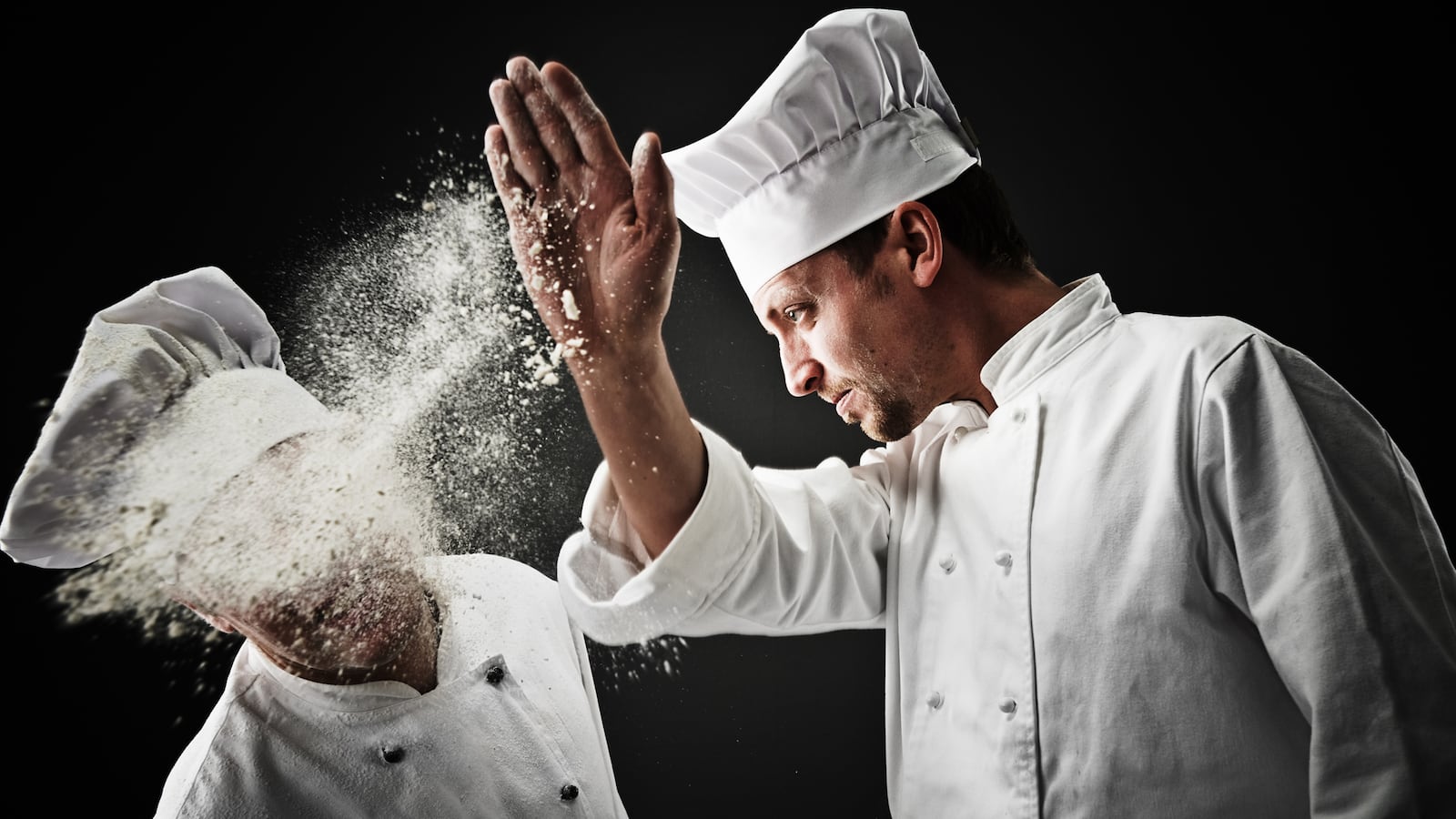If only all international disputes were solved this way.

On Thursday night in Washington, D.C., ambassadors, government officials, chefs, and anybody with an adventurous palate gathered at the Reagan International Trade Center for the Embassy Chef Challenge.
The annual contest, which benefits Cultural Tourism DC, saw chefs from countries like Iraq, Botswana, and Italy vie for the glory of their country and its native dishes. A total of 15 nations competed.
D.C., not exactly known for its exotic fare, was suddenly the center of international culinary cuisine, featuring popular dishes, often with a creative twist.
Iraq wielded a kibbeh against Nepal’s chicken momo. Chef Ángel Lopez from Venezuela proudly dished out his blackened roast with cassava balls and a dark reduced molasses (my personal favorite). Visitors to the Turkish Embassy’s table could be heard offering their condolences for the recent deaths in a mine explosion in between bites of a to-die-for eggplant dish. All the while, embassies and ambassadors took to Twitter to drum up support for their nation’s chefs.
Alcohol was spilled on more than one occasion as attendees tried to literally balance the benefits of an open bar with the delicate dishes of food.

Enthusiasm for certain dishes was contagious. One man kept running around telling people, “You must, must, MUST come and try the chicken momo from Nepal.” He was right.
Many of the competing chefs work in their country’s embassies or act as personal chefs to their ambassadors.
Such was the case of Roman Shchadrin of Russia, whose salmon ice cream with black caviar sauce and potato pâté took home the People’s Choice Award. Shchadrin serves as personal chef to Russia’s ambassador to the U.S., Sergey Kislyak, who must at least be eating well during this tense time. In fact, according to Shchadrin, Kislyak helped him pick the winning recipe.
The dish, which was certainly one of the more intriguing of the night, was once a traditional 18th-century dish served at the court of Catherine the Great.
“I wanted to underscore the tradition,” Shchadrin said. “A tradition that shows exquisite and very unusual taste.” Mission completed.
In an irony of geopolitical proportions, Russia was stationed next to Poland, whose representatives went with the “sex sells” game plan. Attractive young garlanded women in colorful dresses were pouring Żywiec beer and claiming that it tastes better than any American beer because it uses mountain spring water. I’m not sure how great it went with the apricot stuffed trout, however.
Fish dishes were popular throughout the evening. Norway served a delectable North Atlantic halibut confit with smoked purée celeriac, sunchoke, and cured game meat.
Perhaps the best part of the event, however, was the opportunity to try food from countries that are not the most traveled to, like Iraq and Venezuela, as well as the Republic of Congo, Botswana, and Uzbekistan.

While Russia may have won its first popularity contest in D.C., the Royal Thai Embassy walked away with the Judge’s Choice Award for its phla salmon. The panel of judges included, among others, popular cookbook author Joan Nathan, The Washington Post’s food reporter Tim Carman, and the 2013 Embassy Chef Challenge winner Nathan Bates of the New Zealand Embassy.
The event, which outgoing D.C. Mayor Vincent Gray kicked off and former Chief of Protocol of the United States Capricia Marshall chaired, also featured a live and silent auction—with items like roundtrip fares to anywhere in the world on Turkish Airlines, a three-course dinner from executive chef Jan Van Haute from the Embassy of Belgium, and an underground tour of Congressional Cemetery. All of the proceeds benefitted Cultural Tourism, which is a nonprofit famous in D.C. for its walking tours, embassy events, and promotion of arts and culture in the city.
Many political pundits today lament that people on opposing sides no longer sit down, have a couple drinks, and work on a compromise.
Maybe they should try using salmon ice cream.






